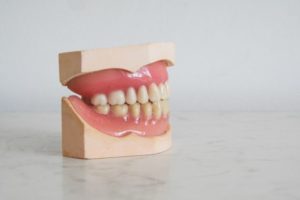07 Mar 4 Signs You Need Your Wisdom Teeth Removed Now

If only wisdom teeth made you wiser. Instead, they tend to be painful annoyances that actually no longer serve a purpose in the modern day.
Your wisdom teeth are the final four adult teeth to come through the gums, which tends to happen in early adult years (between 17-24 years old). It can be a painful experience, and in some cases the wisdom teeth should be removed to eliminate pain, stop overcrowding, and prevent tooth decay.
Here are 4 signs that you might need your wisdom teeth removed now.
1. Bad Breath
If your wisdom teeth are causing bad breath, then you may have a bacterial infection. This infection could have a couple of causes.
Your wisdom teeth might not be cutting through properly, which means there is a higher chance that food and bacteria will become trapped. This can cause discomfort in your gums and bad breath.
Your upper wisdom teeth can sometimes aggravate your sinuses too, causing sinus drainage which then impacts your breathing as you sleep. You will most likely be breathing through your mouth rather than your nose. That dries out your mouth and allows the build up of bacteria that results in bad breath.
2. Painful Gums
Are your gums tender or swollen? Are your gums bleeding? These symptoms might be a sign you need your wisdom teeth removed.
As your teeth come through, sometimes a flap of gum tissue builds up around the gum where the tooth is cutting through. Once again, food and bacteria can get stuck and cause an infection. This leads to inflammation, and your gums become sore and swollen. They might also bleed, which is another sign that removing the teeth would be better for you.
3. Headache and Earache
When we think of wisdom teeth, we only think about the pain in our mouth, but actually, wisdom teeth can affect your head and ears, too. The pain from your mouth or jaw can spread to your head or ears for a couple of reasons.
Tension in the jaw can trigger headaches, and your ears could be impacted because of a connection in your mouth. There’s a tube that goes from the back of your throat to your middle ear. It’s called the eustachian tube, and bacteria can go from your mouth into your ear where it can cause an infection.
4. Swollen and Painful Jaw
When your wisdom teeth try to push through, your jaw can start swelling. This might only be mild at first, but over time it can get worse.
Wisdom teeth can also grow incorrectly, which affects how your teeth bite together. This causes stiffness in the jaw and can lead to difficulties in moving your mouth, like when you eat. If your mouth doesn’t align properly, you may suffer serious dental problems later on.
Final Thoughts
If you’ve noticed any of these 4 signs, then it’s likely that your wisdom teeth are beginning to emerge. You may want to consider having them removed if they are causing discomfort or infection.
To find out more about wisdom teeth removal, get in touch with COOMSA today to discuss the best solution for you.
